Northern fires a political hot potato
MP wants action after First Nations leaders accuse governments of passing buck on fighting, preventing blazes
Advertisement
Read this article for free:
or
Already have an account? Log in here »
To continue reading, please subscribe:
Monthly Digital Subscription
$1 per week for 24 weeks*
- Enjoy unlimited reading on winnipegfreepress.com
- Read the E-Edition, our digital replica newspaper
- Access News Break, our award-winning app
- Play interactive puzzles
*Billed as $4.00 plus GST every four weeks. After 24 weeks, price increases to the regular rate of $19.95 plus GST every four weeks. Offer available to new and qualified returning subscribers only. Cancel any time.
Monthly Digital Subscription
$4.99/week*
- Enjoy unlimited reading on winnipegfreepress.com
- Read the E-Edition, our digital replica newspaper
- Access News Break, our award-winning app
- Play interactive puzzles
*Billed as $19.95 plus GST every four weeks. Cancel any time.
To continue reading, please subscribe:
Add Free Press access to your Brandon Sun subscription for only an additional
$1 for the first 4 weeks*
*Your next subscription payment will increase by $1.00 and you will be charged $16.99 plus GST for four weeks. After four weeks, your payment will increase to $23.99 plus GST every four weeks.
Read unlimited articles for free today:
or
Already have an account? Log in here »
Hey there, time traveller!
This article was published 15/11/2017 (3022 days ago), so information in it may no longer be current.
OTTAWA — A Winnipeg MP is pushing for better federal co-ordination and response to fires on First Nations after allegations of delays, confusion and even miscarriages during Island Lake’s wildfire evacuation this summer.
MaryAnn Mihychuk chairs the House committee on Indigenous and northern affairs, which started a study this month on remote communities that faced wildfires in the summer of 2017.
The Liberal MP feels evacuees from northeastern Manitoba got less support than those in British Columbia’s Shuswap region. “Why did the people in B.C. get treated so much better than the people in Manitoba?” she asked in a recent interview.
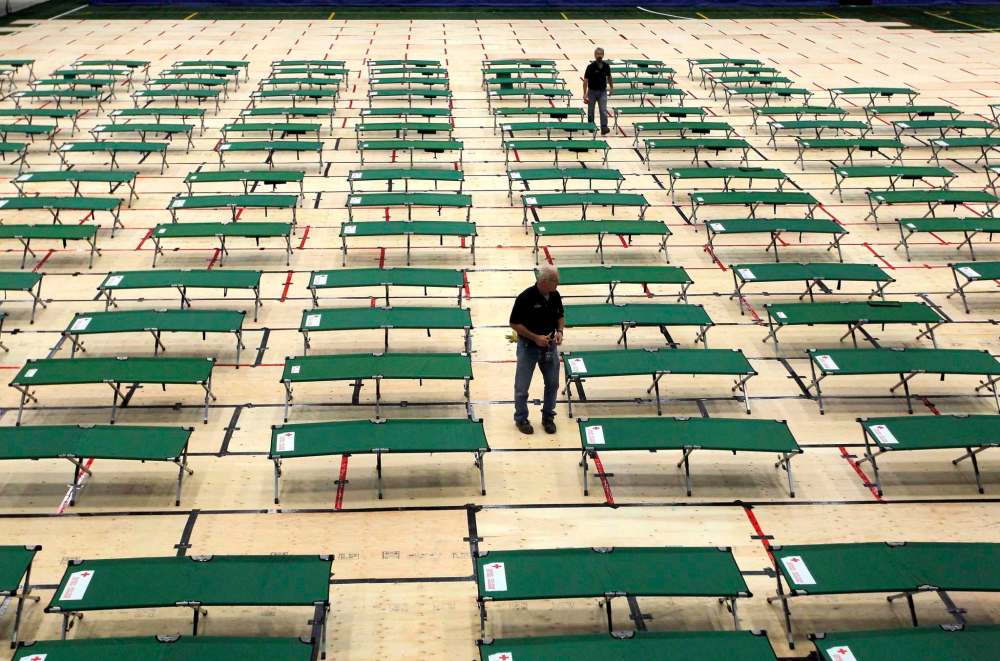
The committee is pondering ideas such as a First Nations fire marshal, who might oversee reserve fire plans and help decide when to order evacuations or water bombers.
Last Thursday, the committee heard from Chief David McDougall of St. Theresa Point, one of three reserves on Island Lake that together had some 6,000 residents relocated to Winnipeg in late August.
The area counts 12,000 First Nations people among the fly-in communities of Garden Hill, Wasagamack and St. Theresa Point.
The communities are served by ice roads but are experiencing shorter winters because of rising temperatures. This summer, high heat and heavy winds intensified a nearby wildfire, covering the area with a dark plume of smoke on Aug. 29.
Flights to Winnipeg started the next day for people categorized as high-priority: the elderly, newborns and asthmatics. McDougall said they first slept in the city on “dorm-style army cots” at the RBC Convention Centre and a Winnipeg Soccer Federation complex.
Indigenous and Northern Affairs Canada (INAC) paid the Red Cross to co-ordinate the response, but the organization had limited success in finding hotels for higher-risk people in Winnipeg and Brandon.
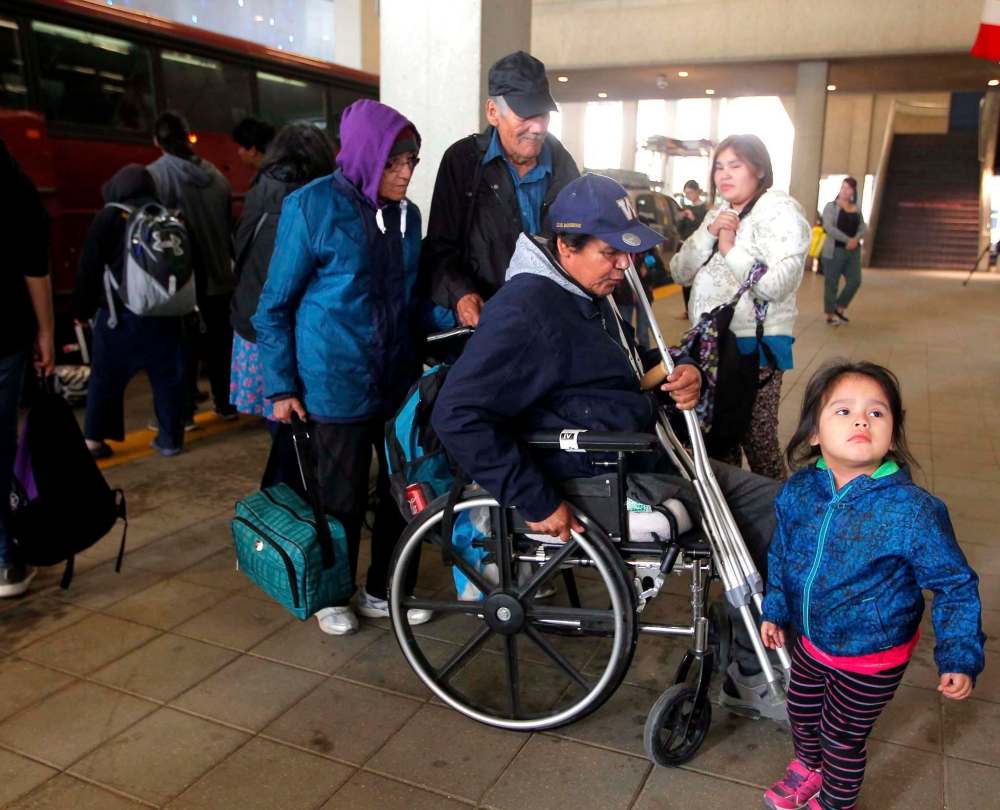
“We had to move elders around to accommodate venues that had been booked beforehand, because the province did not declare a state of emergency,” he alleged, saying hotel staff believed they could have cancelled bookings during a state of emergency.
The province’s Emergency Measures Act lets the Manitoba government “regulate the distribution and availability of essential goods, services and resources,” but government sources say it wouldn’t apply to rebooking hotel rooms when cots were available.
The act does allow the province to expend needed funds, issue evacuation orders and direct officials to enter homes.
“No provincial state of emergency was declared, as First Nations emergency management is the responsibility of INAC,” a provincial spokesman responded Friday.
Yet a key theme in the committee’s hearings was confusion surrounding the role of provinces, because First Nations reserves largely fall under federal regulations.
Keith Maracle, president of the First Nations National Building Officers Association, spoke at length about what he sees as governments passing the buck, in responding to fires and also preventing them.
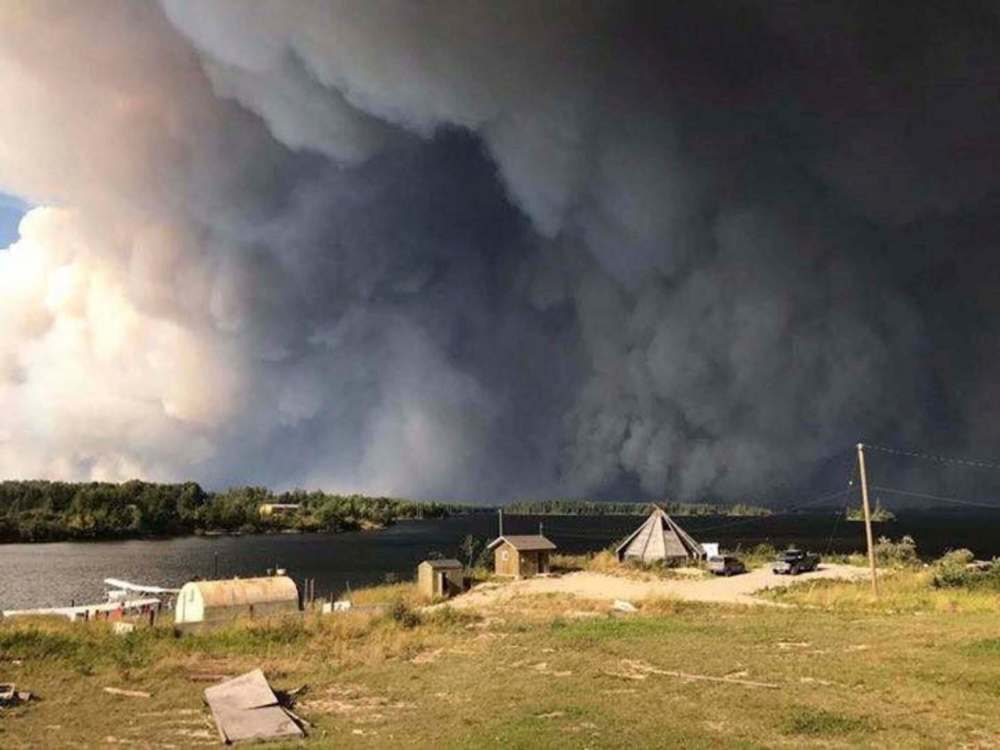
“I run into this all the time, as I travel the country: ‘Oh, you guys are a federal jurisdiction, so the province doesn’t have anything to do with you,’” he told the committee.
Maracle used the example of a national fire code requiring just one door for some large buildings despite multiple provinces requiring more than one.
“Who co-ordinates this kind of stuff for our First Nations people? Nobody does. It goes by the wayside.”
McDougall claimed provincial and federal officials should have better monitored the fire, and Ottawa could have provided tools to push back the nearby flames before they straddled the reserve.
“The water bombers were deployed to another area. They’re not deployed until it’s a real emergency in our area,” he told the committee.
Liberal MLA Judy Klassen, who lives in the area, went further when she addressed the committee through a video link.
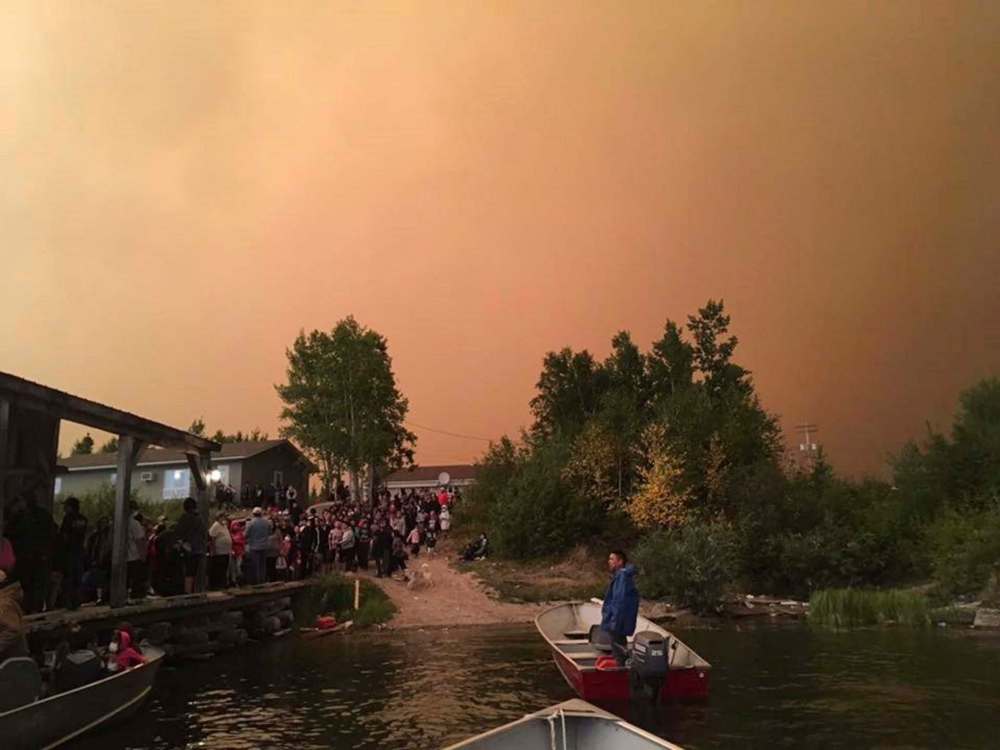
“With respect to Island Lake, such an event did not need to occur,” she said. “There could have been better planning; the fire location was known and the fire was small.”
She alleged the internal, six-kilometre evacuation by boat to St. Theresa Point from Wasagamack led to two miscarriages.
“There were two prenatals who lost their babies in the following days because of that hazardous trip,” she said.
Klassen also claimed a Manitoba Conservation officer denied the community’s request for a water bomber because the reserve fell outside provincial jurisdiction, but she cautioned she’s “still getting that investigated.”
Manitoba Sustainable Development Minister Rochelle Squires shot back at Klassen’s allegations in a Friday email to the Free Press.
“I am deeply disappointed by the comments made about the service of our firefighters and conservation officers who tended to the wildfires in Island Lake,” she wrote. “Officials have offered to brief the MLA for Kewatinook on wildfire response, but to date, that offer has not been accepted.”
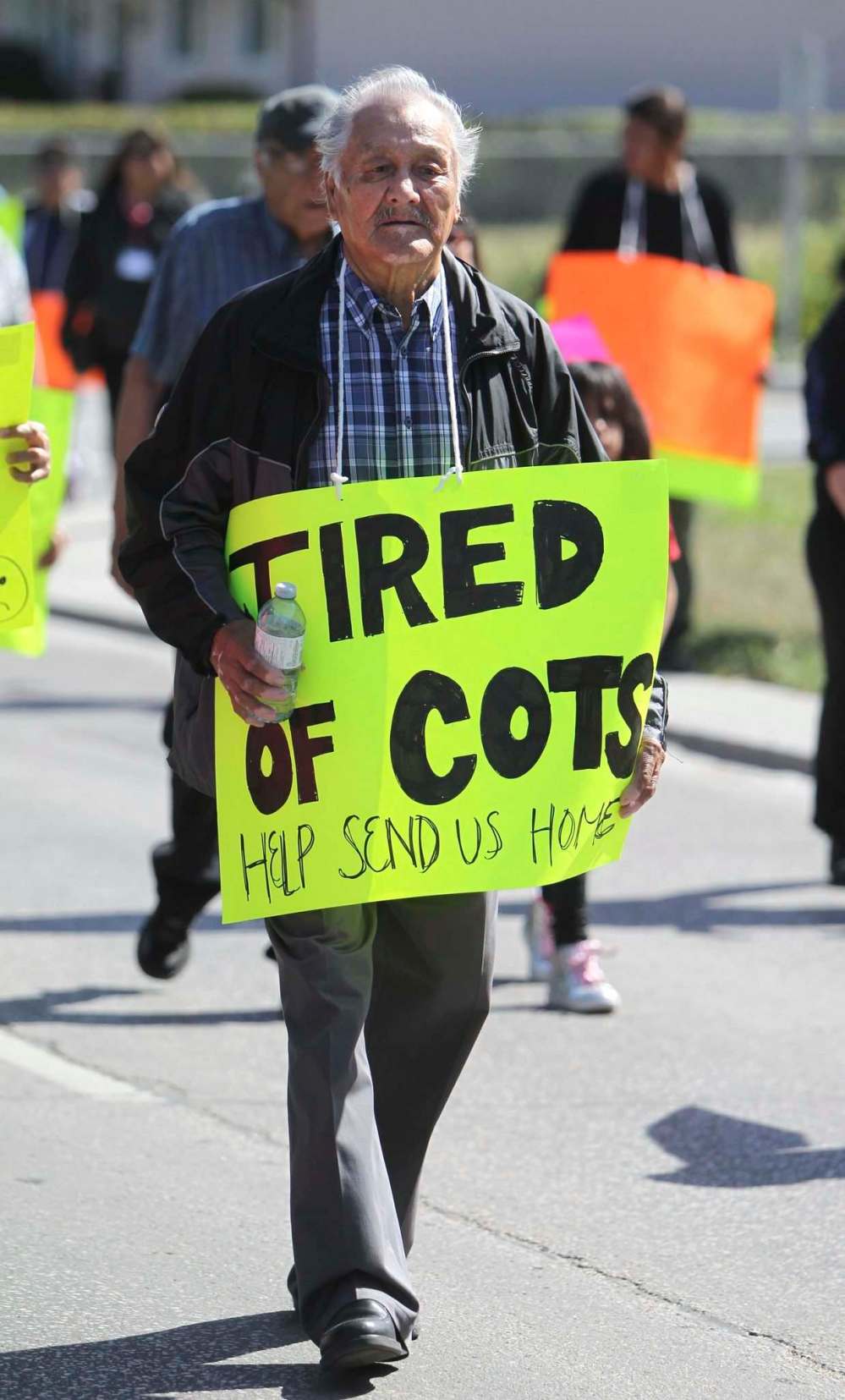
McDougall said the three communities are struggling to cover their costs, with the Red Cross reimbursing $71,000 of $121,000 in claims. “Where do we get the rest of the $50,000? I guess we have to eat that up from our existing budgets that are already strained,” he said.
The committee heard from First Nations people in B.C., who felt left out of emergency co-ordination meetings and grappled with getting compensated for their expenses. Mihychuk said those issues paled in comparison to those faced in Island Lake.
“The living conditions of the Indigenous people in Manitoba are dramatically more stark than what you see in Ottawa,” Mihychuk said. She was surprised to learn the Island Lake area of 12,000 people relies on hospitals in Winnipeg, and services in Cross Lake or Norway House, both located some 200 kilometres west.
“It’s just such a different world and it’s hard to relate those conditions to people that are in the federal bubble. They just can’t understand it.”
The committee will have a fourth meeting to study this summer’s wildfires, likely on Nov. 28.
Maracle said band councils are willing to take leadership but need clarity so fire safety doesn’t fall through bureaucratic cracks.
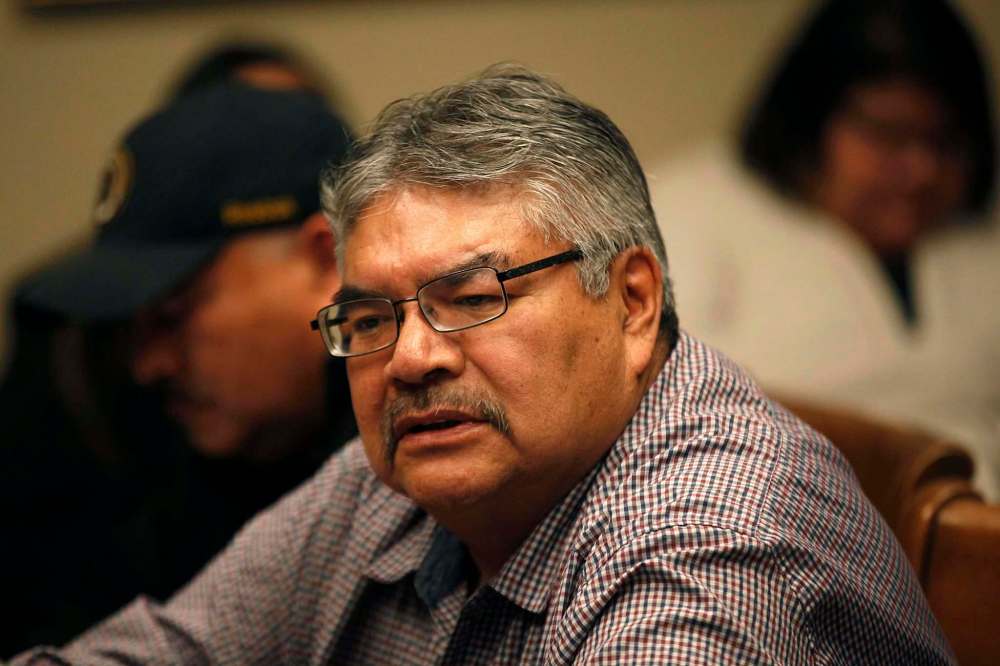
“Somebody needs to start having our best interest at heart here.”
dylan.robertson@freepress.mb.ca
History
Updated on Thursday, November 16, 2017 9:57 AM CST: Clarification of services for Island Lake area residents.

